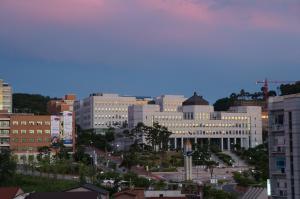Recently, discussions regarding incidents related to labor unions and strikes have been prevalent across various sectors of Korean society. Most citizens have expressed their grievances about the inconvenience caused by strikes in their daily lives, rather than focusing on the essence behind labor union actions. In response, the media has inundated the public with articles criticizing labor unions, reflecting citizens’ opinions and perspectives. In capitalist nations, the ultimate goal of labor unions is to represent the interests of workers in their relationships with employers. When workers feel they are not being heard, they take collective action. One of the most common forms of collective action is the ‘strike’. Strikes are intended to disrupt services to encourage management to take notice of their grievances and citizens are often inconvenienced by their actions and express their displeasure. However, it is important to remember when we express our displeasure with the inconveniences of a strike, we are ignoring the critical voice labor unions have in shaping society.
 |
| ▲ The labor union is in a struggle. (Photo from Maeil Business Newspaper) |
In 2022, a Korean research agency conducted a survey to determine how Koreans view labor unions and strikes. The results showed that 35 percent of respondents held negative perceptions of labor union activities, while only 13 percent had positive perceptions, indicating a strong anti-union stance. Furthermore, negative evaluations of strikes outnumbered those of labor unions by 7 percent. The main reasons cited for the negative perception of strikes were the inconvenience to daily life and the belief that only the labor unions conducting the strikes benefit from their actions,’ both of which were chosen by 35 percent of respondents. According to a trust survey conducted by the Korean Institute of Public Administration on major social institutions, trust in labor unions is equally low. In the first year of Park Geun-hye’s administration in 2013, large corporations (66.4 percent) had the lowest level of trust, followed by the central government (64.6 percent), labor unions (58.6 percent), and civic organizations (49.5 percent). However, in the final year of the Moon Jae-in administration in 2021, labor unions (52.2 percent) became the least trusted institution. Large businesses, on the other hand, were distrusted by 43.3 percent of respondents. According to the two polls, Korea has a negative perception of labor unions and a low level of trust in them. This negative perception of labor unions may lead to a catastrophic societal disaster in the future as the voice of the often unheard gets overtaken by that of large corporate interests.
 |
| ▲ The labor union is in a struggle. (Photo from Maeil Business Newspaper) |
Is it different in other countries? In the case of advanced nations like the United States and the United Kingdom, citizens strongly support labor unions and strikes. In the case of the United States, according to a survey by the Pew Research Center, most Americans have a positive view of labor unions, with only 33 percent expressing their opposition. Furthermore, surveys conducted over the last few decades show that Americans see labor unions positively. For example, at the end of last year, most American adults expressed support for the strike by the United Auto Workers (UAW). Despite the potential negative impact of union strikes on the daily lives of Americans, such as price increases for automobiles, many Americans largely agreed with the demands of the UAW and supported their right to strike. Secondly, in the case of the United Kingdom, according to a survey by YouGov, when the Royal College of Nursing announced its first strike in its 106-year history, the public tended to support their right to strike. Despite the disruption to public service due to this strike, more than half of the public believed that nurses should be allowed to take collective action, leading to increased support for labor unions. Moreover, new tracking data from YouGov shows that support for the right to strike for various other professions such as doctors, teachers, police officers firefighters, and airport traffic controllers is constantly increasing. Therefore, in the cases of the United States and the United Kingdom, despite the inconveniences to daily life due to the disruption in public services resulting from skrike action, many citizens support unions when they believe that their demands are justified or can advance overall social welfare.
 |
| ▲ A Strike by the Labor Union of the Seoul Metro (Photo from Chosun Media) |
Unions represent a collective force for individuals who cannot directly confront powerful entities such as corporations or governments on a one-to-one basis. They collectively advocate for the rights of individual workers and societal minorities. With organized strength, unions influence the distribution of wealth and power, impacting society in many ways. Countries with high unionization rates tend to see increased government welfare spending and reduced wage inequality. While there may be reasons for the unfavorable impressions and low trust for Korean unions, as citizens in a democratic society, we must pay attention to their actions and work to improve public understanding and perception of unions and strikes. Labor unions promote economic equality and empower workers to seek wage increases, better benefits, and safer working conditions, as evidenced by various research studies, including those from the Economic Policy Institute. Therefore, rather than merely criticizing unions and strikes, listening to their voices is crucial. We should consider them as vital avenues for addressing the concerns of workers and as advocates for their rights.
 |
| ▲ The union and the management are at odds. (Photo from Kukminlibo) |
It is inevitable unions, which exist to improve the working conditions of their members, will face criticism as ‘selfish groups.’ However, if we agree that their activities elevate the societal value of ‘labor,’ we all become potential beneficiaries of their collective action. Based on this, labor unions and strikes should be regarded more positively.
홍채연 dankookherald@gmail.com






